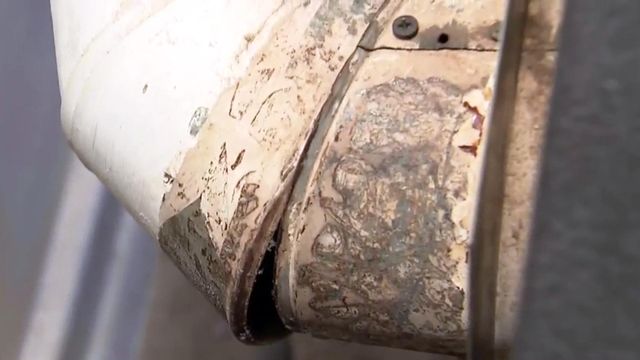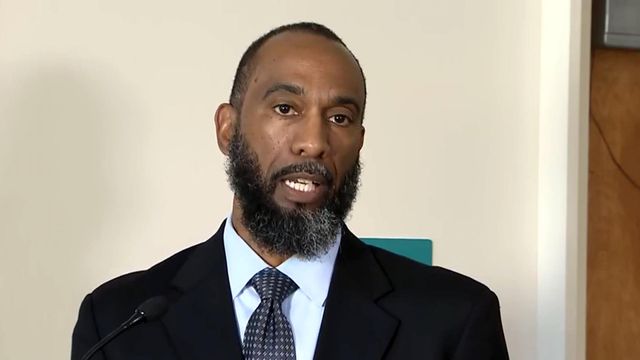Carbon monoxide problems found in 40% of McDougald Terrace apartments checked so far
Contractors needed to make repairs in 40 percent of the McDougald Terrace apartments checked for carbon monoxide issues on Tuesday, Durham Housing Authority Chief Executive Anthony Scott said.
Posted — UpdatedScott said Wednesday that inspections are initially focused on units where residents have decided not to evacuate, and 28 of the 70 inspected on Tuesday required the replacement of at least one gas appliance to eliminate carbon monoxide problems.
The crews should complete the inspections of the occupied units by the end of Wednesday, he said, giving DHA officials a better idea of the scope of the problem.
"You need to look at this in totality to understand the magnitude of what 'the fix' is and how we need to approach that," Scott said at an afternoon news conference. "Obviously, all of this is concerning. That's why we're taking these extraordinary measures."
"You're kind of scared now just by them coming," Cotton said. "The whole time, we didn't know that the pipe wasn't connected. I had the heater running when they came in, and he said, 'Oh, we got to cut this off.'"
Crews shut off gas to the entire apartment, so she and her six children will join the exodus from McDougald Terrace and stay at a local hotel until repairs are made.
"You're putting people at risk, and it's not fair because you're supposed to do your job," Cotton said. "I understand you're saying this is low-income [housing], but at the same time, you got people out here that's working and [living here] based on their income. They're still working and doing what they're supposed to do. You're supposed to do your job at the same time."
McDougald Terrace has repeatedly failed federal safety inspections in recent years.
The U.S. Department of Housing and Urban Development inspects more almost 6,800 public housing complexes across the United States, checking issues ranging from tripping hazards on sidewalks to damaged doors and walls to gas and electrical problems.
McDougald Terrace barely passed its 2016 HUD inspection, but then the bottom fell out in subsequent years, with failing scores of 21, 34 and 31 in the next three years.
Seven of the 14 DHA properties scored below 60 on their most recent HUD inspections. In addition to McDougald Terrace, Hoover Road, Cornwallis Road and Oxford Manor all scored in the 30s in their last inspections.
Scott said DHA puts together plans each year to address the deficiencies, but federal funding is so limited that the agency keeps falling further behind.
"Our properties are in bad shape," he said. "This is not unique to Durham, but across the country, our public housing communities have suffered years and years and decades and decades of underfunding."
Scott said plans call for creating mixed-income developments to provide an income stream separate from HUD funding that could be used in the future for repairs and maintenance.
"You can balance out your overall expenses by having varied incomes that are paying [rent]," he said. "This is a direct result from the conditions of our properties."
Related Topics
• Credits
Copyright 2024 by Capitol Broadcasting Company. All rights reserved. This material may not be published, broadcast, rewritten or redistributed.






